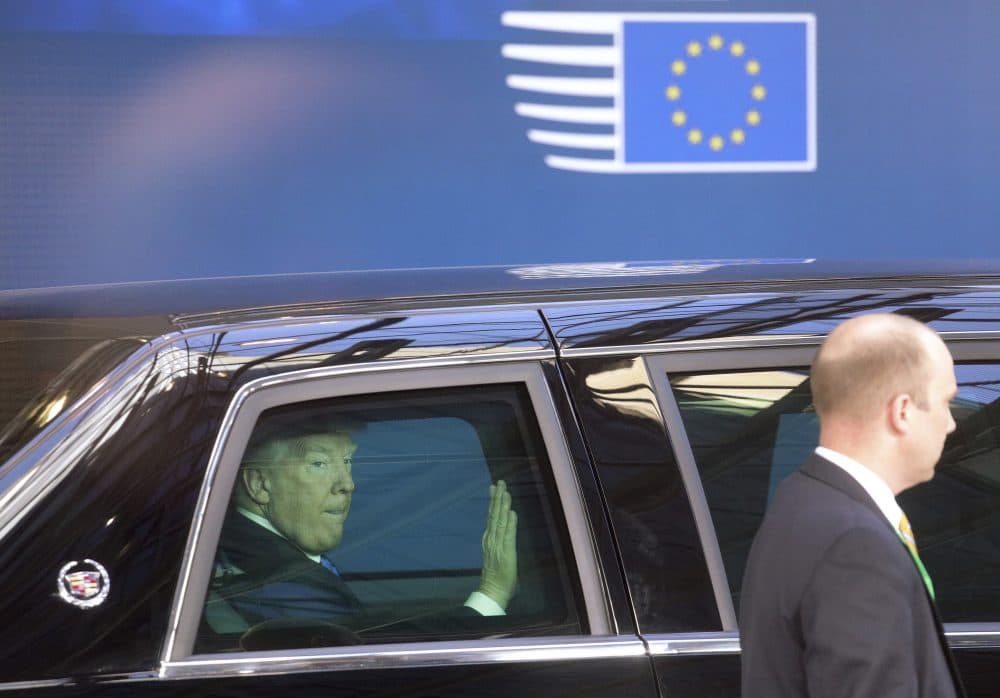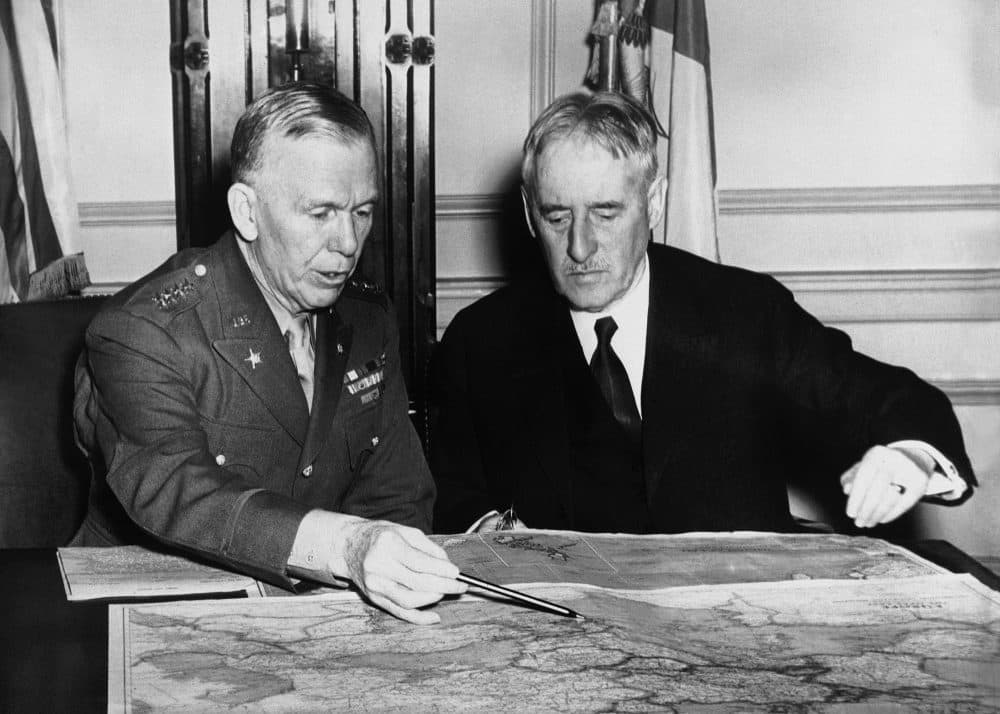Advertisement
Commentary
Why We Need Foreign Aid

In the age of Trump, you need a sense of humor — or at least irony — while following the news.
Here’s a timely example: This month marks the 70th anniversary of the Marshall Plan, under which the United States gave $13 billion over four years to European countries devastated by World War II. We mark that anniversary as President Trump proposes to chainsaw foreign aid.
It’s hardly surprising that the little man currently in the Oval Office can’t fill the visionary shoes of George Marshall. The five-star general had been elevated to secretary of state when, on June 5, 1947, he gave a speech at Harvard University declaring that “the United States should do whatever it is able to do to assist in the return of normal economic health in the world. ...”
It’s inconceivable that Trump, who can’t even muster the infrastructure plan he promised, would commit the percentage of gross domestic product to anything that the Marshall Plan committed to Europe (today, it would be $900 billion). The largest foreign aid effort ever, the plan revived recipient economies and earned generations of gratitude to the United States.

Lessons from that history and from more recent experience should be kept in mind as Trump and his henchmen bloviate about foreign aid. First and foremost, aid can work.
No one disputes that the Marshall Plan succeeded. Yet today, you’ll hear claims that things are different. The Heritage Foundation’s Stephen Moore recently told NPR, “Foreign aid has been about the biggest waste of money in the federal budget for the last 50 years. There’s zero evidence that any of these foreign aid programs have had any effect on development, whether it’s in the Middle East or Africa or South America.”
Moore has made a career of spectacularly wrong statements. Georgetown development professor Steve Radelet says the preponderance of academic studies suggests that aid helps. Even the skeptical Economist magazine concedes the point (while asking whether there’s more bang for the buck from free trade and liberalized immigration). Moore’s broad-brush dismissal also misses the research-corroborated triumphs of foreign aid in global health, Radelet notes, such as former President George W. Bush’s AIDS and malaria initiatives.
These successes repeated the triumphs of the Marshall Plan; by the time it ended, most European recipients had seen their economies grow 15 to 25 percent, with key industries revived.
If the Marshall Plan is one of many examples of the good that comes from aid, it teaches two other lessons, writes Washington Post columnist David Ignatius: Effective aid requires deft implementation and public support.
Now we have cause for real concern.
The Marshall Plan was undertaken by Harry Truman, who, Ignatius says, rallied popular support by showing presidential competence and principal. Truman’s successor today is unprincipled and incompetent, his bluster about running a “fine-tuned machine" notwithstanding.
If Trump’s no Truman, he leads a citizenry famously unaware that we spend a trifle on foreign aid; the average answer in a 2016 Kaiser Family Foundation public opinion poll estimated the amount the United States spends abroad to be one-third of the federal budget. Actual amount: 1 percent. This ignorance abets Trump’s insistence that we’re overspending on others when it should be America First.
Lessons from that history and from more recent experience should be kept in mind as Trump and his henchmen bloviate about foreign aid.
Aid advocates in Congress don’t command a bully pulpit equal to the president’s, so they’ll have to use the tools at their disposal to make their case. (We know Trump’s a Twitter addict; some provocative tweets about his aid budget might get him to fire back, drawing publicity to the debate.) They should argue, truthfully, that theirs is the America First position, as aid helps buy better lives for foreigners that could otherwise veer toward terrorism. It’s also the right thing to do, though that won’t ever persuade some aid opponents.
Ignatius, who covers foreign affairs, suggests a concrete undertaking. “The screaming fact about the world of 2017 is that we need, yes, a Marshall Plan, for the post-Islamic State Sunni areas of Iraq and Syria,” he says. “Mosul and Raqqah will likely be cleared in a matter of weeks. The need for governance, security, economic development and rule of law are truly urgent, and bear comparison to Europe’s desperate situation in 1947.”
Aid to help the victims of terror for whom Trump claims to care. Now that would call the president’s bluff.
